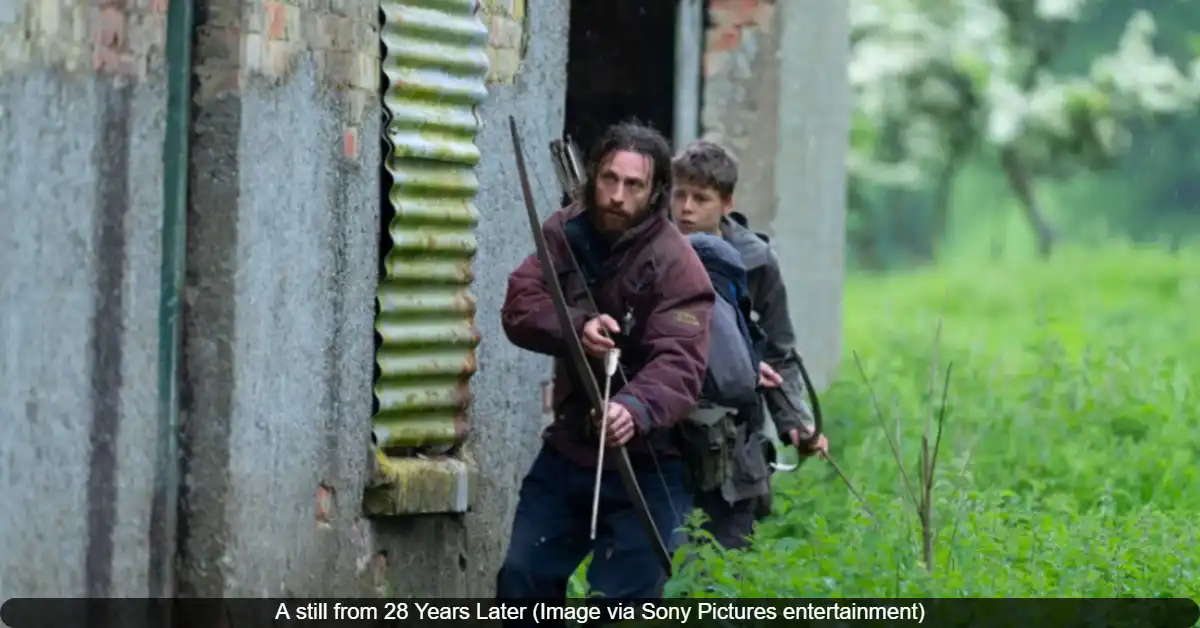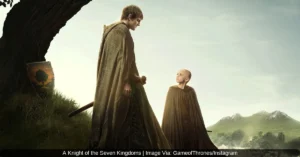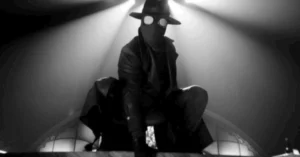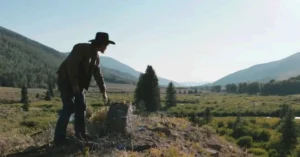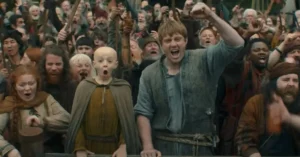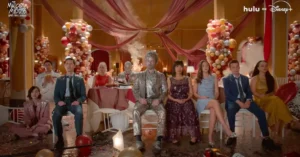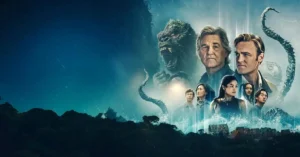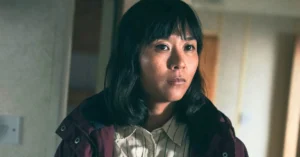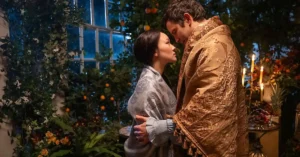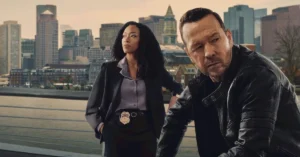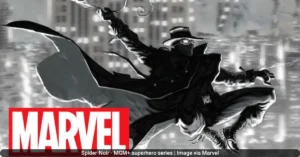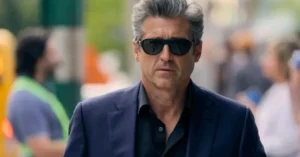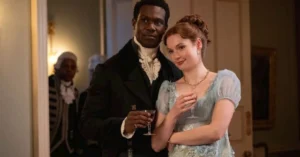The first look at “28 Years Later,” the new movie in the popular zombie series, features a haunting and unsettling piece of audio. Instead of typical movie music, the trailer for the upcoming film uses a spoken word recording of a famous poem. This choice has grabbed the attention of many viewers and created a strong sense of dread. The specific audio is a 1915 recording of Rudyard Kipling’s poem “Boots,” performed by American actor Taylor Holmes. This unique selection sets a dark and reflective tone for the film, which is a return for original director Danny Boyle and writer Alex Garland.
The poem “Boots” was first published in Kipling’s 1903 collection, “The Five Nations.” It describes the repetitive, grueling experience of British Army infantrymen marching during the Second Boer War. The verses focus on the relentless “slog-slog-slog-sloggin’” of boots and the maddening effect of this constant movement on soldiers. Phrases like “Boots—boots—boots—boots—movin’ up and down again!” and “There’s no discharge in the war!” are repeated, emphasizing the unending struggle and lack of escape. This repetition mirrors the unending horror faced by survivors in the “28 Days Later” universe.
The recording by Taylor Holmes from 1915 adds another layer of historical weight to the trailer. His delivery starts calmly but slowly builds in intensity, eventually becoming a terrified shriek. This progression of emotion in the audio perfectly matches the visuals of a world still grappling with the “Rage virus” nearly three decades after the initial outbreak. The age of the recording itself contributes to the chilling atmosphere, as if viewers are hearing echoes from a past filled with despair and conflict.
It is important to note that this specific recording of “Boots” has a real-world connection to military training. The US Navy has used this audio in its Survival, Evasion, Resistance, and Escape (SERE) program. This program is designed to help soldiers build mental toughness and resilience in difficult situations. Reports from individuals who have undergone SERE training mention hearing this poem played on a loop while they were held in stress positions or interrogated. The poem’s ability to drive a sense of monotony and mental strain makes its inclusion in the “28 Years Later” trailer particularly effective in conveying the long-term psychological impact of the apocalypse.
The film “28 Years Later” picks up the story almost three decades after the original outbreak of the Rage virus. The trailer highlights that even after such a long time, humanity has not overcome the threat. The use of Kipling’s poem suggests that the characters in the movie, much like the soldiers in the poem, are trapped in an ongoing fight for survival with no clear end. The constant struggle and the toll it takes on their minds are central themes hinted at by this audio choice.
“28 Years Later” is the third movie in the series, following “28 Days Later” (2002) and “28 Weeks Later” (2007). This new movie aims to kick off a new trilogy, further exploring the themes of survival, new mutations of the infected, and the breakdown of society. The trailer’s audio choice demonstrates a thoughtful approach to storytelling, using a seemingly simple element to communicate deeper meanings about the characters’ experiences and the grim reality of their world.
The movie is set to release on June 20, 2025, in the United States, United Kingdom, and Canada. Sony Pictures Releasing is distributing the film. The cast includes Jodie Comer, Aaron Taylor-Johnson, and Ralph Fiennes. Cillian Murphy, who starred in the first movie, is also expected to make an appearance, though it might be a later part of the new trilogy. The official synopsis talks about a group of survivors on a fortified island who must maintain quarantine from the infected. A journey into the mainland reveals mutated creatures and dark secrets that threaten their fragile existence.
The decision by director Danny Boyle and writer Alex Garland to use “Boots” as the primary audio for the trailer has been widely praised. It stands out from many modern trailers that rely on loud, booming music or sound effects. This minimalist approach allows the unsettling spoken word to create a unique and powerful impression, leaving viewers with a lasting sense of unease and anticipation for the film. The atmosphere created by this specific audio track is a strong indication of the movie’s tone and its focus on the mental and physical toll of long-term survival in a world forever changed by the virus.
The film’s score is being composed by the Scottish hip-hop group Young Fathers, marking their debut in film scoring. They previously contributed to the soundtrack for Boyle’s “T2 Trainspotting.” Their involvement suggests that while the trailer uses a classic poem, the overall musical landscape of the movie will be fresh and unique, fitting the evolving nature of the “28 Days Later” series. The combination of classic literature and modern music promises a compelling audio experience for audiences.
Also Read: 10 Key Things to Know From ’28 Days Later’ Before Watching ’28 Years Later’; See Full List

